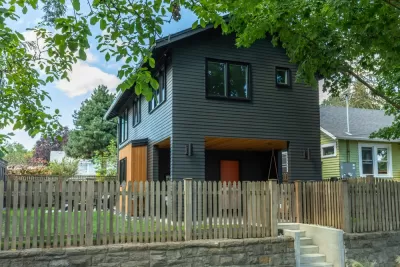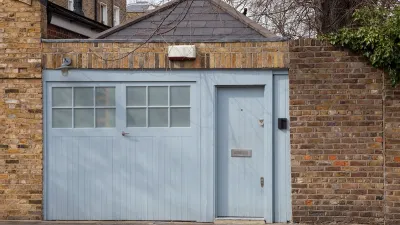With the right policies in place, basement apartments, converted garages, and backyard cottages can create a significant number of affordable housing units.

In an op-ed in Governing, Emily Hamilton outlines the results of her research into how accessory dwelling units (ADUs) can play a role in easing the housing crisis and the policies cities and states can leverage to encourage ADU construction.
“At one end of the spectrum, California policymakers have gone the farthest to protect homeowners’ right to build ADUs. On the other, New Hampshire policymakers legalized ADUs but left open the opportunity for local zoning ordinances to put many limits on them,” Hamilton explains. Even in California, owner occupancy requirements limited ADU construction until 2017, when a series of state laws limited the power of cities to regulate ADUs and led to an “impressive surge” in ADU permits.
Regulations and policies aren’t the only things that have an impact on ADU production, however. “Two other key determinants of ADU construction — and of its potential to lower prices in a given city or neighborhood — are how easy it is to adapt the existing housing stock to include them and the willingness of local homeowners to take the leap to build them.” Hamilton adds that in New Hampshire, where localities have a lot of leeway in restricting ADUs, some cities are seeing a high rate of permitting in part due to the state’s older population and the adaptability of existing housing stock.
Hamilton concludes that, with the right policies in place, ADUs “may be the least contentious way to create opportunities for more housing within existing residential neighborhoods.”
FULL STORY: The Role of ADUs in Easing America's Housing Crisis

Maui's Vacation Rental Debate Turns Ugly
Verbal attacks, misinformation campaigns and fistfights plague a high-stakes debate to convert thousands of vacation rentals into long-term housing.

Planetizen Federal Action Tracker
A weekly monitor of how Trump’s orders and actions are impacting planners and planning in America.

Chicago’s Ghost Rails
Just beneath the surface of the modern city lie the remnants of its expansive early 20th-century streetcar system.

Bend, Oregon Zoning Reforms Prioritize Small-Scale Housing
The city altered its zoning code to allow multi-family housing and eliminated parking mandates citywide.

Amtrak Cutting Jobs, Funding to High-Speed Rail
The agency plans to cut 10 percent of its workforce and has confirmed it will not fund new high-speed rail projects.

LA Denies Basic Services to Unhoused Residents
The city has repeatedly failed to respond to requests for trash pickup at encampment sites, and eliminated a program that provided mobile showers and toilets.
Urban Design for Planners 1: Software Tools
This six-course series explores essential urban design concepts using open source software and equips planners with the tools they need to participate fully in the urban design process.
Planning for Universal Design
Learn the tools for implementing Universal Design in planning regulations.
planning NEXT
Appalachian Highlands Housing Partners
Mpact (founded as Rail~Volution)
City of Camden Redevelopment Agency
City of Astoria
City of Portland
City of Laramie





























